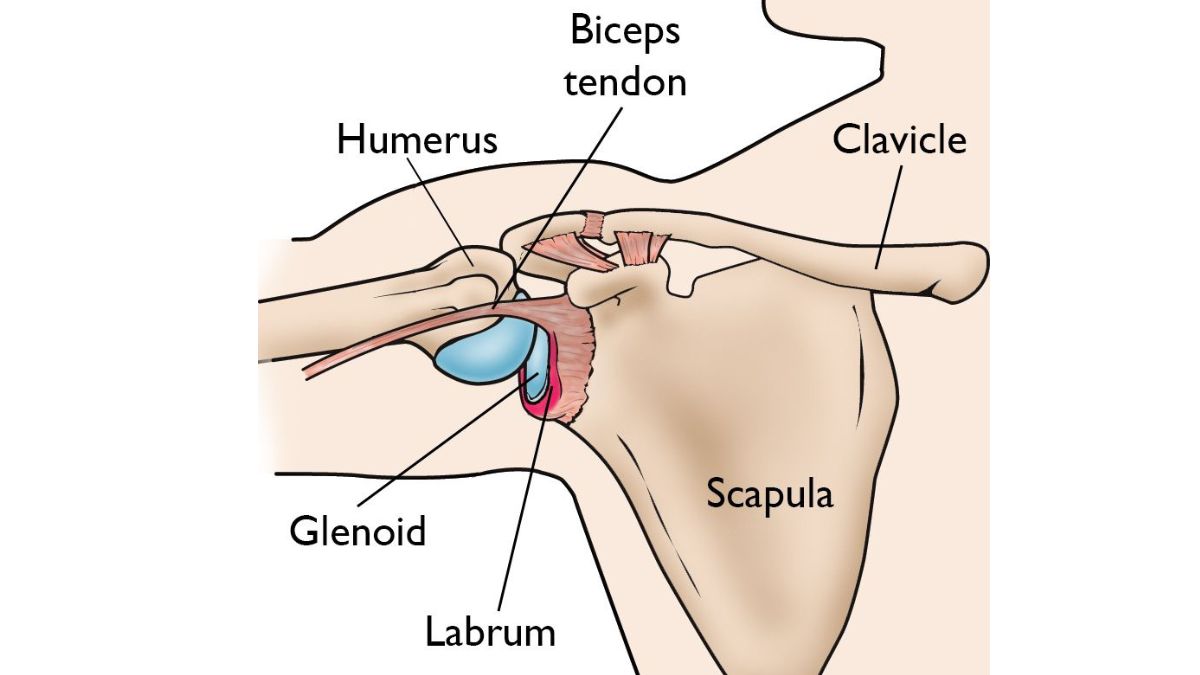HEALTH
Olaplex Shampoo vs. Regular Shampoo: What’s the Difference?

When it comes to hair care, the choices seem endless. Among the sea of products available, Olaplex shampoo has gained a reputation for offering something more than just basic cleaning for your hair. But what sets Olaplex shampoo apart from regular shampoo? And is it worth the hype? In this article, we will compare Olaplex shampoo to regular shampoo, exploring their differences and how they impact your hair care routine.
What Is Olaplex Shampoo?
Olaplex shampoo is a part of the Olaplex hair care line, which is known for its focus on repairing damaged hair. The brand became popular with its bond-building technology, which targets and repairs broken disulfide bonds in the hair shaft. These bonds, which are vital for the strength and structure of the hair, can become damaged due to chemical treatments like coloring or heat styling. Olaplex products, including the shampoo, are designed to repair and restore these bonds, giving your hair a healthier, more manageable appearance.
The Science Behind Olaplex Shampoo
Olaplex shampoo is formulated with a unique bond-building ingredient called bis-aminopropyl diglycol dimaleate. This ingredient works by re-linking the broken bonds in the hair, strengthening it from the inside out. Regular shampoo, on the other hand, is primarily designed to clean the hair by removing oils, dirt, and buildup without providing any structural benefits. Olaplex shampoo goes a step further by addressing the health of your hair while you wash it, making it different from regular shampoo.
What Does Regular Shampoo Do?
Regular shampoo is a product used to cleanse the hair and scalp. Its primary function is to remove oils, sweat, and other impurities that accumulate on the scalp and hair throughout the day. Shampoo works by using surfactants to break down oils and dirt, which are then rinsed away with water. While regular shampoo does an excellent job of keeping the hair clean, it does little to improve the condition of the hair itself. It may, however, contain conditioning agents that leave hair feeling soft, but these effects are temporary and do not address the underlying health of the hair.
The Lack of Bond Repair in Regular Shampoo
Unlike Olaplex shampoo, regular shampoo does not repair broken bonds in the hair. Regular shampoo only serves as a cleaning agent, with no added benefits for strengthening or restoring damaged hair. If your hair is chemically treated or prone to damage, regular shampoo may not be enough to maintain its health and strength over time. That’s where Olaplex shampoo stands out.
Key Differences Between Olaplex Shampoo and Regular Shampoo
Now that we understand what each type of shampoo does, let’s take a closer look at the key differences between Olaplex shampoo and regular shampoo.
1. Bond-Building vs. Basic Cleansing
The most significant difference between Olaplex shampoo and regular shampoo is that Olaplex shampoo is designed to repair the hair’s structure while cleansing it. It works on a molecular level to repair broken disulfide bonds in the hair, which helps to restore the strength and integrity of your hair. In contrast, regular shampoo focuses only on cleaning, leaving the health of your hair untouched. This means that if you have damaged or chemically treated hair, Olaplex shampoo can help improve its condition over time, while regular shampoo will only temporarily make it feel clean.
2. Formula and Ingredients
Olaplex shampoo contains the brand’s signature bond-building technology, bis-aminopropyl diglycol dimaleate, which targets broken bonds and repairs them. It is formulated with high-quality ingredients that not only clean your hair but also nourish and strengthen it. Regular shampoo, however, usually contains surfactants like sodium lauryl sulfate or sodium chloride to clean the hair, along with some moisturizing agents. While regular shampoo can come in various formulations for different hair types (e.g., dry, oily, or color-treated), it doesn’t offer the same deep repair benefits as Olaplex shampoo.
3. Effect on Hair Health
Olaplex shampoo has a long-term impact on the health of your hair. If you have damaged hair from color treatments, heat styling, or environmental factors, using Olaplex shampoo regularly can help restore the strength of your hair. Over time, it may reduce breakage and split ends, making your hair look shinier and more resilient. Regular shampoo, however, only provides a temporary fix by cleaning your hair. It doesn’t offer any substantial repair or strengthening benefits, so if you’re looking for healthier hair, regular shampoo may not be enough.
Olaplex Shampoo Reviews: What Users Say
Olaplex shampoo has garnered a lot of attention, and for good reason. Users report seeing noticeable improvements in their hair after using it consistently. Many have shared positive Olaplex shampoo reviews, noting how it leaves their hair feeling softer, stronger, and less prone to damage. For those with color-treated or over-processed hair, Olaplex shampoo is often seen as a game-changer, as it helps to reverse some of the damage caused by chemical treatments.
However, there are some mixed reviews as well. Some users feel that the shampoo is too expensive for their budget and may not see immediate results. But for those who are looking for a long-term solution to hair damage, the investment in Olaplex shampoo may be worthwhile.
Olaplex Shampoo Price: Is It Worth It?
One of the most frequently asked questions about Olaplex shampoo is whether the price justifies the benefits. Olaplex shampoo price is higher than many regular shampoos, and for some, this can be a deterrent. The cost of Olaplex shampoo reflects the premium ingredients and the bond-building technology that goes into each bottle. If you have damaged or chemically treated hair, the price may be worth it, as the long-term benefits of stronger, healthier hair may outweigh the initial cost.
In comparison, regular shampoo is usually more affordable and accessible. However, while it may be easy on the wallet, it does not offer the same repair and strengthening benefits as Olaplex shampoo.
Which One Should You Choose?
Choosing between Olaplex shampoo and regular shampoo ultimately depends on your hair’s needs. If your hair is in good condition and you’re simply looking for a daily cleansing product, regular shampoo may be sufficient. However, if your hair is damaged, color-treated, or prone to breakage, Olaplex shampoo can help restore its health over time.
For those willing to invest in a high-quality, repairing shampoo, Olaplex shampoo offers significant long-term benefits. Its ability to repair damaged hair from within makes it a worthwhile option for those looking to improve the overall strength and appearance of their hair.
In the debate between Olaplex shampoo and regular shampoo, the key difference is the added benefit of repairing hair bonds with Olaplex shampoo. While regular shampoo serves as a cleansing agent, Olaplex shampoo goes a step further by strengthening and rebuilding the hair from the inside out. If you’re dealing with hair damage, Olaplex shampoo reviews often highlight its effectiveness in restoring hair health. Though the Olaplex shampoo price may be higher than regular options, its long-term benefits make it a solid investment for those seeking healthier, stronger hair.
HEALTH
What Is a SLAP Tear? Understanding This Common Shoulder Injury

If you’ve been experiencing shoulder pain, clicking, or a loss of strength—especially during overhead movements—you may be dealing with more than just a strain. One possible culprit is a SLAP tear, a specific type of injury to the shoulder joint that can affect everyone from athletes to weekend warriors.
What Does “SLAP Tear” Mean?
SLAP stands for Superior Labrum Anterior and Posterior. In simpler terms, it’s a tear in the top part of the labrum—the ring of cartilage that surrounds the socket of your shoulder joint. This cartilage helps stabilize your shoulder and keep the ball of your upper arm bone in place. When torn, the result can be instability, discomfort, and reduced mobility.
How Does a SLAP Tear Happen?
SLAP tears can result from either acute trauma or repetitive motion. Some of the most common causes include:
- Falling on an outstretched arm
- Lifting heavy objects or weights with poor form
- Repetitive overhead movements (common in baseball, swimming, tennis, etc.)
- Sudden pulling motions (like grabbing something while falling)
In some cases, SLAP tears can also be part of the natural wear-and-tear process, especially in people over 40.
Common Symptoms of a SLAP Tear
Not all SLAP tears feel the same, but here are some symptoms to watch for:
- Deep shoulder pain, especially during overhead activity
- A clicking or popping sensation
- Weakness or fatigue in the shoulder
- Limited range of motion
- A feeling that your shoulder is going to “slip out”
These symptoms often mimic other shoulder conditions, which is why getting an accurate diagnosis is so important.
Diagnosing a SLAP Tear
A shoulder specialist will typically begin with a physical exam and a review of your activity history. Imaging tests like an MRI can help confirm the diagnosis, though in some cases, an arthroscopic procedure may be necessary to fully visualize the tear.
For a deeper dive into how SLAP tears are diagnosed and treated, visit: https://levelupshoulder.com/slap-tears/
Treatment Options
Treatment depends on the severity of the tear and your activity level. In mild cases, rest, anti-inflammatory medications, and physical therapy may be enough to restore function. For more serious tears—especially in younger or highly active individuals—arthroscopic surgery may be recommended to repair the torn labrum.
Post-surgery, a rehabilitation program will help restore range of motion, rebuild strength, and reduce the risk of reinjury.
Don’t Ignore Shoulder Pain
A SLAP tear can seriously impact your ability to perform daily tasks and enjoy physical activity. If you’re experiencing persistent shoulder pain, especially with overhead movements, it’s worth getting it checked out. Early treatment leads to better outcomes and a quicker return to the things you love.
HEALTH
What Is Orthopedic Medicine? An Intro to Bone and Joint Health

From sore knees after a weekend hike to a torn rotator cuff that just won’t heal, many of us deal with bone, joint, or muscle pain at some point in our lives. That’s where orthopedic medicine comes in. But what exactly does it cover—and when should you see an orthopedic specialist?
Whether you’re an athlete, a weekend warrior, or simply want to stay mobile and pain-free as you age, understanding the basics of orthopedic care can help you make better decisions about your health.
What Is Orthopedic Medicine?
Orthopedic medicine is a branch of medicine focused on the musculoskeletal system, which includes your bones, joints, ligaments, tendons, muscles, and nerves. The goal is to diagnose, treat, and prevent injuries and disorders that affect movement, stability, and function.
Orthopedic specialists, also known as orthopedists or orthopedic surgeons, are trained to handle everything from acute injuries (like fractures and dislocations) to chronic conditions such as arthritis, tendonitis, and degenerative joint disease.
What Conditions Do Orthopedic Doctors Treat?
Orthopedic medicine covers a wide range of conditions affecting different areas of the body, including:
- Shoulder injuries: rotator cuff tears, labral tears, impingement
- Knee issues: ACL tears, meniscus injuries, runner’s knee, arthritis
- Spine problems: herniated discs, sciatica, scoliosis
- Hip pain: bursitis, labral tears, osteoarthritis
- Hand and wrist: carpal tunnel syndrome, fractures, tendonitis
- Foot and ankle: plantar fasciitis, sprains, Achilles tendon injuries
Many of these conditions can be treated with non-surgical methods, though surgery may be necessary in more severe cases.
Types of Orthopedic Care
Orthopedic care includes both surgical and non-surgical options, depending on the injury or condition. Treatment approaches may involve:
- Physical therapy and rehabilitation
- Injections (such as cortisone or PRP) to reduce inflammation and pain
- Bracing or casting for stability and healing
- Minimally invasive surgery, like arthroscopy
- Joint replacement surgery, typically for hips, knees, or shoulders
For example, orthopedic treatments by Level Up Shoulder, Dr. Drake focus not only on surgical repair of shoulder injuries, but also on functional rehab, strength restoration, and getting patients back to the activities they love—faster and stronger.
When Should You See an Orthopedic Doctor?
If you’re experiencing any of the following, it may be time to schedule a consultation:
- Persistent joint or muscle pain
- Swelling or stiffness that doesn’t improve with rest
- Limited range of motion in a joint
- Weakness or instability
- An injury that isn’t healing properly
- Pain that interferes with your daily life or sleep
Early intervention can prevent long-term damage and get you back to full strength sooner.
Conclusion
Orthopedic medicine plays a vital role in keeping your body moving the way it should. Whether you’ve suffered a sports injury or are dealing with years of wear and tear, orthopedic specialists are trained to help you regain mobility, reduce pain, and improve your quality of life.
From preventive care to advanced surgical procedures, orthopedic treatments are designed to keep your bones and joints working better, for longer.
HEALTH
Raising Healthy Smiles: The Essentials of Pediatric Dental Care

What Is Pediatric Dentistry?
In addition to providing dental care, pediatric dentistry promotes good oral hygiene from an early age. Unlike general dentistry, pediatric dentists focus on young patients’ unique challenges and considerations. Their specific training prepares them to prevent and treat oral health problems in newborns, kids, and teenagers. Facilities like a Pediatric Dentist in Thornton provide environments specifically designed for children, helping ease anxiety and making dental visits enjoyable experiences. A pediatric facility’s vibrant and entertaining surroundings can significantly influence a child’s desire to get dental care.
The Importance of Early Dental Visits
Starting dental visits early is an investment in lifelong oral health. These initial visits, as recommended by the American Academy of Pediatric Dentistry, set the stage for understanding the importance of dental care. These are crucial periods when dentists can introduce children to oral hygiene and the significance of caring for their teeth. By capturing a child’s interest and removing any fear associated with dental visits, these experiences contribute to effectively monitoring and guiding the development of both baby and permanent teeth.
Understanding Common Pediatric Dental Issues
Children’s dental problems, including cavities and gum disease, are sometimes written off as trivial, but if ignored, they can cause serious health problems. Children are prone to cavities due to the sugary foods they consume and their sometimes irregular brushing habits. In addition, behaviors like thumb-sucking and extended use of pacifiers can affect tooth alignment and jaw development. By attending regular dental visits, parents can gain insights from dental professionals on mitigating these risks and ensuring early intervention. A more secure oral future can result from early detection of these disorders, which can stop them from developing into more serious tooth health difficulties.
Tips for Promoting Healthy Dental Habits
Creating a routine around dental care can help instill lifelong habits in children. They must be taught to use fluoride toothpaste and clean their teeth twice daily. Flossing should also be incorporated once teeth begin to touch. These habits need reinforcement at home to foster a sense of accountability in children. Parents can use visual aids or reward systems as positive reinforcements. Demonstrating proper techniques adds value, as children are likely to imitate the actions they observe. Good oral hygiene should be framed positively as an empowering practice rather than a chore.
Nutrition’s Role in Oral Health
A balanced diet is a pillar of strong oral health. Foods containing essential minerals, particularly calcium and phosphorus, are crucial in maintaining healthy enamel and oral well-being. Nuts, leafy greens, and dairy products can all significantly improve tooth health when consumed regularly. It’s also critical to restrict the consumption of acidic drinks and sugary foods that cause cavities. The resource on WebMD highlights the importance of a balanced diet in protecting your child’s teeth. Making informed choices about diet is an impactful way for parents to exercise control over their child’s oral health outside of the dental office.
How to Choose the Right Pediatric Dentist
Choosing a pediatric dentist shouldn’t be rushed. It’s a decision that can influence a child’s view of dental care. A pediatric dentist’s ability to communicate effectively with children and a friendly, inviting office atmosphere can make visits less intimidating. You could feel more at ease reading online reviews or asking friends for recommendations. The right dentist will engage with children in a way that builds trust and encourages enthusiasm for dental care. Parents are encouraged to visit potential dental practices to assess the environment and ensure it aligns with their child’s comfort levels and needs.
Setting Up a Child-Friendly Dental Routine
Making dental hygiene a habitual, positive practice begins with creativity. Utilizing tools such as songs, colorful toothbrushes, or even digital apps tracking brushing time can turn routine into fun. Allowing your child to pick out their dental supplies can also foster a sense of ownership over their oral hygiene. Establishing a routine, like brushing after breakfast and before bed, helps to weave dental care seamlessly into daily life. Consistency is key, and positive reinforcement can encourage a child to see these activities as enjoyable and rewarding.
Navigating Dental Anxiety in Children
Dental anxiety can significantly impact a child’s willingness to receive care, but it can be managed successfully. Introducing your child to the dental office gradually and supportively can alleviate fear. Explaining dental procedures using child-friendly language and offering reassurance can demystify the experience. Techniques such as deep breathing exercises or storytelling can divert attention, making visiting less daunting. Creating a supportive environment at home and during dental visits cultivates a positive attitude toward long-term dental wellness.
-

 BLOG1 year ago
BLOG1 year agoATFBooru: A Hub for Animated Art and Community
-

 CONSTRUCTION1 year ago
CONSTRUCTION1 year agoBuilding a Home Gym in Your Basement (7 Key Renovation Tips)
-

 BLOG1 year ago
BLOG1 year agoFictionmania: A Deep Dive into the World of Transformative Stories
-

 LIFESTYLE1 year ago
LIFESTYLE1 year agoVersatile Living: Stylish Indoor Outdoor Rugs with Eco-Friendly Appeal
-

 GAMES1 year ago
GAMES1 year agoSnow Rider 3D: Unblocked Tips and Tricks for Gamers
-

 LIFESTYLE1 year ago
LIFESTYLE1 year agoAchieve Elegance with Chic Blue Formal Dresses and Redken Professional Hair Care for All Hair Types
-

 BLOG1 year ago
BLOG1 year agoGIFHQ: A Comprehensive Guide
-

 BLOG1 year ago
BLOG1 year agoVincent herbert new wife: A Detailed Overview
